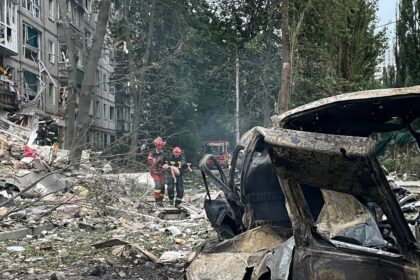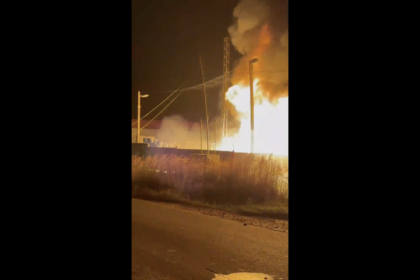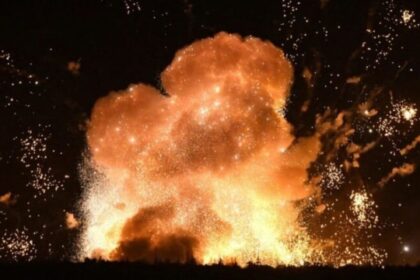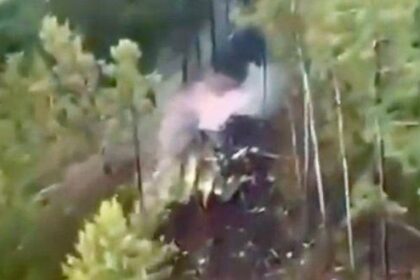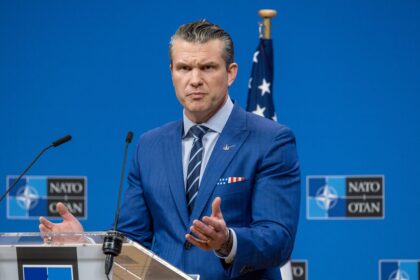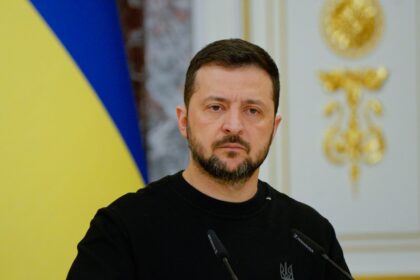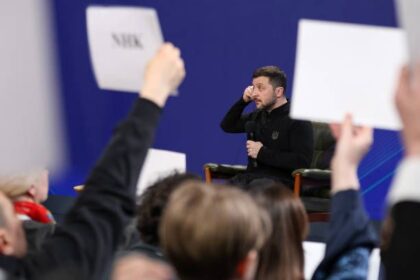**Russia’s War on Ukraine: A Diplomatic Disconnect**
The brutal murder of 11-year-old Maksym Martynenko and his parents, killed by a Russian missile strike in April 2025, serves as a grim reminder of Russia’s ongoing war crimes in Ukraine. The mutilated body of Victoria Roshchyna, whose eyes were gouged out and brain removed, is a stark illustration of the atrocities that have been committed since Russia’s invasion of Ukraine in 2014.
In the midst of this violence, the White House celebrated a minerals deal with Kyiv, a gesture that was met with widespread skepticism. This disconnect between diplomatic efforts in Washington and the unrelenting violence on the ground speaks to a deeper problem: the U.S. has yet to treat Russia’s war as a strategic threat to be dealt with decisively.
**A Policy of Carrots and Sticks**
Since President Donald Trump took office, the policy of offering carrots to Ukraine and sticks to Russia has been replaced by a cold shoulder for Ukraine and olive branches for Russia. The Kremlin has consistently exploited these overtures, treating them as weakness rather than goodwill. This approach has allowed Russia to continue its aggression unchecked.
**Ukraine’s Dogged Resistance**
Eleven years after the initial invasion, Ukraine remains defiant in the face of Russian brutality. The country’s refusal to surrender serves as a testament to its determination for freedom and self-determination. However, this resilience is being met with indifference by the international community, including the United States.
**The Revanchist Threat**
History has taught us that unchecked aggression only grows stronger with time. Eighty years ago, the world learned this hard lesson during World War II, when Poland was invaded by Germany and the Soviet Union. The war eventually reached American shores, highlighting the importance of decisive action in the face of aggression.
**The U.S. Must Act**
In light of this history, it is imperative that the United States stops signaling weakness and starts acting with resolve. Arming Ukraine, isolating Moscow, and holding war criminals accountable are essential steps towards a more effective foreign policy. This approach will not only help Ukraine but also send a strong message to other aggressors around the world.
**The Consequences of Inaction**
Meanwhile, Russia is drawing America’s rivals and enemies into its criminal war effort. The presence of North Korean troops in Russian trenches, Iranian drones raining on Ukrainian cities, and Chinese nationals captured on the battlefield are all disturbing signs of Moscow’s expanding influence. If this is not a provocation, what is?
**A New Approach**
Instead of pressuring the aggressor, Washington is threatening to walk away from negotiations altogether. This ultimatum does little to address the root causes of the conflict and instead serves as a signal of American weakness. Ukraine wants peace, not pieces.
**The Minerals Deal: A Distraction?**
The minerals deal, touted as a mechanism for repayment, has been criticized for its poor timing and prominence in light of fresh atrocities and America’s ceasefire efforts rejected by Russia. This approach is more akin to shakedown than strategic partnership.
**Conclusion**
We are not ending a war – we are indulging a war criminal. The longer we pretend this is a conflict to be negotiated, rather than a criminal aggression to be terminated, the more respect – and security – we will lose. It is time for the United States to take decisive action and treat Russia’s war on Ukraine as the strategic threat it truly is.
Andrew Chakhoyan is an academic director at the University of Amsterdam, teaching a course on multilateralism. He has served in the U.S. government, managing international development programs at the Millennium Challenge Corporation, and overseeing regional government affairs covering Ukraine and Russia at the World Economic Forum.





